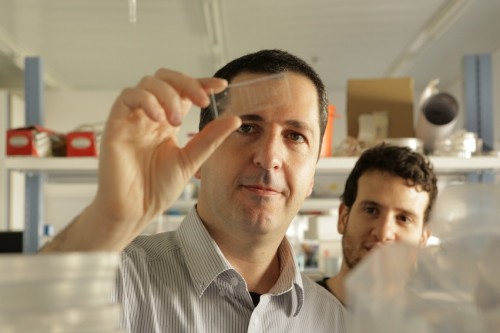"Despite the relatively small number of patients, the clinical results encourage and support in-depth clinical research on the use of fibrates to treat severe corona patients" explains Dr. Jacob Nachmias

As published last July, Prof. Jacob Nachmias, head of the Center for Bioengineering at the Hebrew University, succeeded in cracking the replication mechanism of the SARS-CoV-2 virus in human lung cells, which takes over the metabolic mechanism of the cells and prevents them from breaking down fats effectively. Later, Prof. Nachmias located a drug called Fenofibrate (Ticor), a well-known drug that has been approved for use by the FDA since 1975 and is intended for the treatment of high levels of triglycerides in the blood. The drug accelerates the breakdown of fats in the lung cells, thus stopping the development of the disease.
"We knew that the system we developed for the Tissue Dynamics company gives us a unique perspective on the mechanism of action of the virus in the lungs," said Prof. Nachmias. After the discovery of the drug in the laboratory, Prof. Nachmias, together with Prof. Oren Shibulat from the Ichilov Hospital and Dr. Sigal Shafran-Tikva from the Hadassah Hospital, in recent months collected data on about 1500 corona patients from Tel Aviv and Jerusalem who are taking a variety of drugs that can affect the accumulation of fats in lung cells. The results were unequivocal - patients who took drugs from the fibrate family, which encourage the breakdown of fats, recovered from pneumonia caused by the corona virus within a few days. Among the patients taking fibrates there was no mortality at all.
Prof. Nachmias: "We showed that the lung response to SARS-CoV-2 is mainly metabolic, and leads to a massive accumulation of lipids in lung cells. Our data suggest that aberrant lipid accumulation underlies critical aspects of the development of COVID-19 and host tissue activity must be targeted in order to prevent the disease from developing. The drug we offer to treat Corona, fenofibrate, contributes to the rapid breakdown of fats and therefore 'hijacks' its growth medium from the virus. On the other hand, drugs for diabetes from the TZD family, such as pioglitazone, whose purpose is to encourage the production of fats only worsen the disease and cause a faster development of pneumonia and respiratory difficulties, and you should consider the possibility of replacing them with other drugs." "Despite the relatively small number of patients, the clinical results encourage and support in-depth clinical research on the use of fibrates to treat severe corona patients," added Prof. Shibulat. According to the research team's assessment, drug treatment with fenobibert, an available, cheap and safe drug, could turn COVID-19 into a type of cold in the coming months.
This week, a clinical trial of the drug funded by Abbott will begin at the Barzilai Hospital in Ashkelon in patients who do not take fenofibrate regularly, led by Prof. Shlomo Mein, director of the hospital's infection department. This experiment will join a series of clinical experiments in the US, South America, and Europe that try to confirm the results of Prof. Nachmias. "While the new vaccines are designed to reduce the infection rate and protect populations at risk," explains Prof. Shlomo Mein, "the medicine is designed to treat the disease and prevent severe respiratory symptoms and death. We hope for the first results of the clinical trial in the coming months.'
